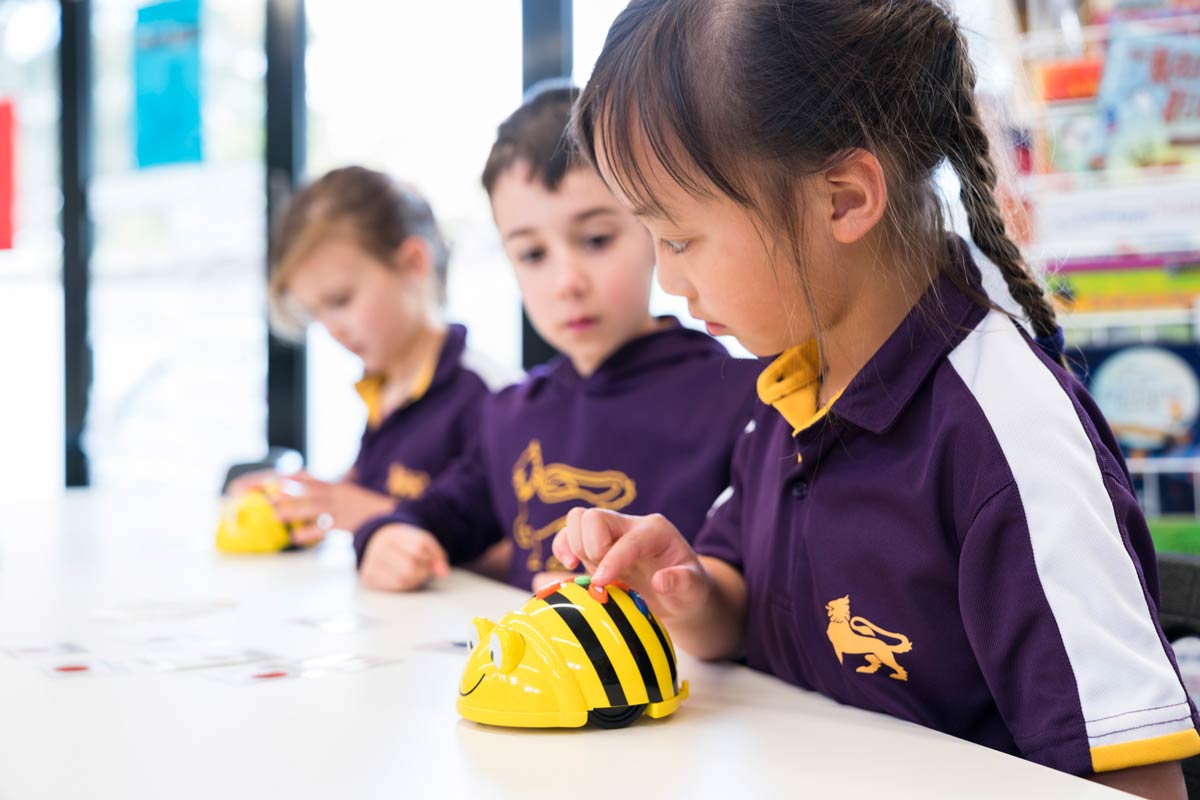
Student agency has been found in studies to be as important an outcome of schooling as basic skills such as reading or writing. As Ben Dooley explains, when students are agents of their learning, they understand how – as well as what – to learn.
In December 2019, every Australian Education Minister signed the Alice Springs (Mparntwe) Education Declaration, agreeing that the Australian education system must prepare young people for the rapid social and technological change in the world.
Achieving this purpose depends on approaches to teaching that enable lifelong learning, focused not only on what our students learn but how they learn. To ensure that our students become successful lifelong learners, and active and informed members of the community, our job as teachers is to enable students to develop their knowledge, skills and attitudes over time, and their capability to learn, sometimes called learning to learn or ‘meta-learning’.
Purposeful ‘self-helping’ learners
For teachers at Wesley, one of the most rewarding moments is when we witness this meta-learning in our students. Often, we see it in their purposeful initiative or agency, when they proactively engage in and with the world around them, a bit like ‘self-help’ learners. When we’re collecting evidence of students’ learning, we look for measures of their progressive development of knowledge and their application of skills and strategies in maths, say, or text analysis or hand-eye coordination. But we also look for measures of their development of strategies and attitudes that enable them to learn: from attack skills for problem solving to being persistent and responsible for their learning, so that learning is what they actively do. In a word, we look for measures of their agency.
As a newcomer to Wesley last year, I experienced this agency firsthand when our Glen Waverley Junior School students played a substantial role in my orientation process. They told me all about the school, showed me the learning spaces and playing areas they enjoy. Importantly, they suggested where and how Wesley should change, where the playground, for example, could be improved for all. Our students spoke not only with confidence but also a sense of purpose, intending to effect change and improve their own and others’ lives.
Developing student agency and basic skills
A 2015 Harvard study found that student agency may be as important an outcome of schooling as basic skills. The report, The Influence of Teaching Beyond Standardized Test Scores: Engagement, mindsets and agency, draws on findings from a survey of more than 300,000 students in Years 6 to 9 in the 2013-14 school year in the United States and found that the capacity for and propensity to enact agency may be as important an outcome of schooling as the basic skills of reading and writing.
‘Young people with high levels of agency do not respond passively to their circumstances; they tend to seek meaning and act with purpose to achieve the conditions they desire in their own and others’ lives. The development of agency may be as important an outcome of schooling as the skills we measure with standardised testing,’ Ronald Ferguson and co-authors conclude.
‘Agency boosters’
According to Ferguson and colleagues, the aim of educators should be to foster teaching practices they call ‘agency boosters’ that stimulate students to think more rigorously by striving to understand concepts, not simply memorise facts, and to explain their reasoning.
Their study finds that when teachers challenge students to think more rigorously, students show:
- greater mastery orientation, in other words, a personal commitment to learning
- increased effort
- increased growth mindset – the belief that effort grows ability
- more conscientiousness, and
- higher aspirational goals.
Our approach in teaching is to create a safe and stimulating learning environment and agency-boosting teaching practices that are conducive to developing student agency. The main aim of the agency-boosting strategies used by teachers is to challenge students to:
- think rigorously and persist when experiencing difficulty
- think deeply for understanding rather than simply memorising, and
- think with sensitivity to their immediate environment and wider community.
Student agency at Wesley
Consider the following examples I’ve seen in a single week. An ‘earthquake’ in Year 4 that disrupted the classroom environment, prompting students to investigate how we would and should prepare for and respond to natural disasters. Discussions to improve the Fairy Garden so that more people could sit quietly. Investigations of the feasibility of installing trampolines in the playground. Understanding the importance of friendship after reading Oliver Jeffers’s Lost and Found with the Preps, who led me to understand that the main characters were not lost, but had in fact found friendship.
For Ferguson and colleagues, student agency enables both learning and learning to learn because it develops productive knowledge, skills and attitudes that make students better learners – and our students are demonstrably developing these. We see this in everything from social skills like empathy, cooperation, assertiveness and responsibility, to academic behaviours like organising themselves, applying appropriate attack skills to different problems and persisting on tasks; and from learning strategies like goal setting and self-regulated learning, to mindsets like grit, tenacity, self-control and, importantly, the belief that effort grows ability.
And at a time when the world faces complex problems, student agency is something we need more than ever before.
Ben Dooley is the Head of Junior School at Wesley’s Glen Waverley Campus
